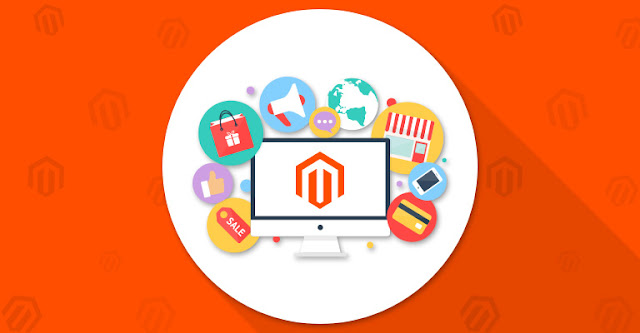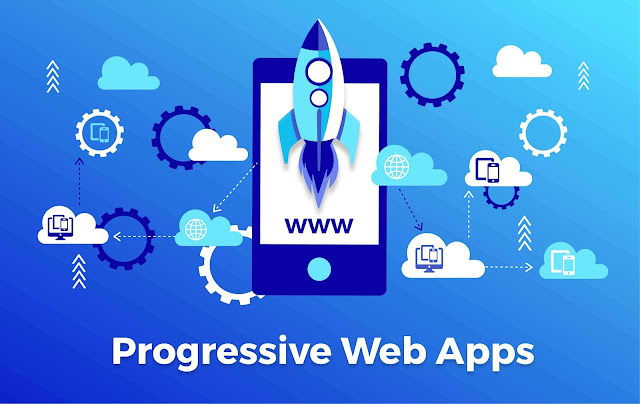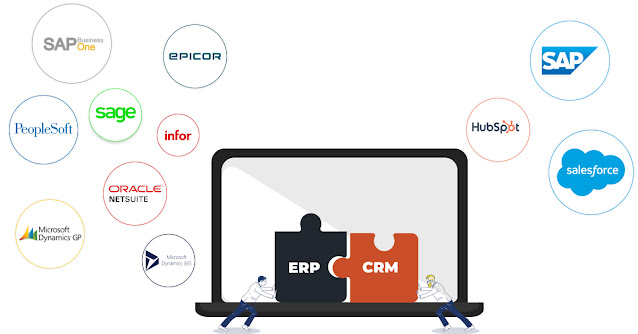Latest Trends in Magento Development
Introduction
In the rapidly evolving digital landscape, e-commerce has
become an integral part of businesses worldwide. To stay competitive, companies
need reliable and feature-rich e-commerce platforms that cater to their unique
requirements. Magento, an open-source e-commerce platform, has emerged as a
leading choice for many businesses due to its flexibility, scalability, and
extensive feature set. In this article, we will explore the latest trends in
Magento development, shedding light on how this platform continues to adapt to
the ever-changing needs of online businesses.
What is Magento Development?
Magento ecommerce development refers to the process
of building and customizing e-commerce websites using the Magento platform.
Developed by Varrien Inc., Magento has gained popularity for its rich set of
features, customization capabilities, and robustness. Over the years, it has
become a top choice for businesses of all sizes, from small startups to large
enterprises.
The Evolution of Magento
Magento has evolved significantly since its initial release.
Let's take a look at its journey:
Magento 1.x
Magento 1.x, the first version of the platform, was released
in 2008. It quickly gained traction due to its open-source nature and
feature-rich architecture. However, as technology advanced, Magento 1.x faced
challenges in terms of performance and security, leading to the development of
the next version.
Magento 2.x
Magento 2.x was released in 2015, addressing the
shortcomings of its predecessor. With a completely revamped architecture,
enhanced performance, improved security, and a more intuitive admin interface,
Magento 2.x set new standards for e-commerce platforms.
Benefits of Magento Development
Magento offers numerous benefits that make it a preferred
choice for e-commerce businesses. Some of the key advantages include:
Flexibility and Customization
Magento provides unparalleled flexibility, allowing
businesses to customize their online stores according to their specific needs.
With an extensive range of themes, templates, and extensions available,
merchants can create unique and personalized shopping experiences.
Scalability and Performance
As businesses grow, their e-commerce platforms must handle increasing traffic and transactions. Magento's scalable architecture ensures that the platform can accommodate the expanding needs of businesses without compromising performance.
Mobile Responsiveness
In today's mobile-first world, having a mobile-responsive
e-commerce website is crucial. Magento offers built-in mobile optimization features,
ensuring a seamless shopping experience for users across different devices.
SEO-Friendly
Magento is designed with search engine optimization (SEO) in
mind. It enables merchants to optimize their online stores for better search
engine rankings, increasing visibility and attracting more organic traffic.
Latest Features and Updates in Magento 2.x
Magento 2.x continues to receive regular updates and
improvements to enhance its functionality and user experience. Some of the
latest features include:
PWA Studio
The PWA Studio in Magento 2.x enables the development of
Progressive Web Applications (PWAs), offering users a native app-like
experience on the web. PWAs are known for their speed, responsiveness, and
offline capabilities.
GraphQL Support
GraphQL, a modern API technology, is now natively supported
in Magento 2.x. This enhances data retrieval efficiency and enables more
flexible and precise data queries.
Elasticsearch Integration
Elasticsearch integration significantly improves the
platform's search functionality, providing faster and more accurate search
results for users.
Progressive Web Applications (PWAs)
As mentioned earlier, PWAs are a game-changer in the
e-commerce industry, and Magento's PWA Studio empowers businesses to adopt this
cutting-edge technology.
Page Builder
The Page Builder in Magento 2.x allows merchants to design
and customize web pages effortlessly, even without technical expertise.
Multi-Source Inventory (MSI)
MSI in Magento 2.x allows businesses to manage inventory
across multiple sources efficiently. This is particularly beneficial for
merchants with multiple warehouses or stores.
The Rise of Headless Magento
In recent years, headless commerce has gained traction as a new approach to e-commerce architecture.
What is Headless Commerce?
Headless commerce is a decoupled architecture where the
front-end and back-end of an e-commerce website are separated. In traditional
commerce platforms, the front-end and back-end are tightly integrated. However,
with headless commerce, the front-end can be built independently and connected
to the back-end via APIs.
Advantages of Headless Magento
Headless Magento provides several advantages, such as:
Flexibility: The front-end can be developed using any
technology or framework, offering greater design and user experience
possibilities.
Speed and Performance: With the front-end and
back-end separated, performance is optimized, resulting in faster load times
and a smoother user experience.
Personalization: The headless approach allows for
more personalized user experiences, tailored to individual preferences and
behaviors.
Challenges of Headless Magento
While headless commerce offers various benefits, it also
comes with challenges:
Complexity: Developing and managing separate
front-end and back-end systems require additional expertise and resources.
Integration Efforts: Integrating the front-end with
the back-end may be more time-consuming and complex than traditional e-commerce
setups.
AI and Machine Learning in Magento Development
Artificial Intelligence (AI) and Machine Learning (ML) are
transforming the e-commerce landscape, and Magento is no exception. Here are
some areas where AI and ML are making an impact:
Personalization and Customer Experience
AI-powered recommendation engines analyze customer behavior
and preferences to offer personalized product suggestions and content,
enhancing the overall shopping experience.
Fraud Prevention
AI algorithms can detect fraudulent activities, reducing the
risk of chargebacks and ensuring secure transactions for both merchants and
customers.
Inventory Management
Machine Learning algorithms help predict demand patterns,
optimize inventory levels, and ensure products are available when customers
need them.
The Growing Significance of Mobile Commerce
The rise of smartphones has led to a surge in mobile
commerce, where customers prefer to shop on their mobile devices. Magento
recognizes the importance of mobile commerce and offers several mobile
optimization features:
Mobile Shopping Trends
With more people using their smartphones to shop online,
businesses must prioritize mobile responsiveness and a user-friendly mobile
interface.
Mobile Optimization in Magento
Magento's mobile optimization features ensure that
e-commerce websites perform well on various mobile devices and screen sizes,
delivering an excellent mobile shopping experience.
Security and Compliance in Magento
As e-commerce involves the processing of sensitive customer
information, security is of utmost importance. Magento provides robust security
features to protect both merchants and customers.
Security Best Practices
Following security best practices, such as regularly
updating the platform and using secure hosting solutions, is essential to
safeguarding e-commerce websites.
Compliance with Payment Card Industry Data Security Standard (PCI DSS)
Magento complies with PCI DSS requirements, ensuring that
credit card data is handled securely and reducing the risk of data breaches.
Integrations and Third-Party Extensions
One of Magento's strengths is its ability to integrate with
various third-party applications and extensions, extending its functionality
further.
ERP and CRM Integrations
Integrating Magento with Enterprise Resource Planning (ERP)
and Customer Relationship Management (CRM) systems streamlines business
operations and enhances customer management.
Popular Magento Extensions
Magento's vast extension marketplace offers a wide range of
add-ons and modules to enhance specific aspects of e-commerce websites, such as
marketing, analytics, and customer support.
Magento vs. Other E-commerce Platforms
With numerous e-commerce platforms available, merchants must
carefully evaluate their options to choose the most suitable solution. Let's
compare Magento with other popular e-commerce platforms:
Magento vs. Shopify
Magento offers greater customization options and
scalability, making it ideal for growing businesses with specific requirements.
On the other hand, Shopify is more user-friendly and easier to set up, making
it suitable for small businesses and beginners.
Magento vs. WooCommerce
WooCommerce, being a plugin for WordPress, is easier to
manage for those already familiar with the WordPress environment. However,
Magento surpasses WooCommerce in terms of scalability and enterprise-level
capabilities.
Magento vs. BigCommerce
Both Magento and BigCommerce cater to mid-to-large-sized
businesses. While BigCommerce is more user-friendly, Magento provides more
extensive customization options and flexibility.
Tips for Successful Magento Development Projects
To ensure a successful Magento development project,
businesses should consider the following tips:
Detailed Planning and Requirements Gathering
Thoroughly understanding the business's needs and objectives
is crucial for planning a successful Magento development project.
Choosing the Right Hosting Solution
Selecting a reliable hosting solution that can handle the
website's traffic and performance requirements is essential for a seamless
shopping experience.
Regular Updates and Maintenance
Keeping Magento and its extensions up-to-date ensures
security, performance, and access to the latest features.
Performance Optimization
Optimizing website performance, including page load times
and responsiveness, is vital for user satisfaction and SEO.
User Experience and Design
Prioritizing user experience and intuitive design ensures
that customers have a positive shopping experience and are more likely to
convert.
Future Trends in Magento Development
As technology continues to evolve, Magento development is
expected to incorporate new trends and innovations:
Augmented Reality (AR) and Virtual Reality (VR) Integration
AR and VR technologies are revolutionizing the way customers interact with products online, enhancing product visualization and customer engagement.
Voice Commerce
With the rise of smart speakers and voice assistants, voice
commerce is expected to become more prominent, allowing customers to make
purchases using voice commands.
Blockchain Integration
Blockchain technology can improve transparency and security
in e-commerce transactions, providing a decentralized and trustworthy platform
for online shopping.
Enhanced Customer Analytics
AI-powered analytics will enable businesses to gain deeper
insights into customer behavior, preferences, and purchase patterns, leading to
better-targeted marketing strategies.
Continued Focus on Mobile Commerce
As mobile usage continues to grow, Magento will continue to
prioritize mobile commerce features and optimize user experiences on mobile
devices.
Conclusion
Magento development has come a long way since its inception,
constantly evolving to meet the demands of modern e-commerce. With its robust
features, flexibility, and commitment to innovation, Magento remains a leading
choice for businesses seeking to establish a strong online presence. As
technology continues to advance, Magento's adaptability and focus on
customer-centric experiences will ensure it remains at the forefront of
e-commerce development.
FAQs
Q: Is Magento a suitable platform for small businesses?
A: While Magento is a powerful platform with
enterprise-level capabilities, it may not be the most suitable choice for very
small businesses or those with limited technical expertise. Smaller businesses
may find platforms like Shopify or WooCommerce more user-friendly and easier to
manage.
Q: How does Magento ensure the security of e-commerce websites?
A: Magento follows industry best practices for security and
regularly releases updates to address potential vulnerabilities. It also
complies with the Payment Card Industry Data Security Standard (PCI DSS),
ensuring the safe handling of credit card data.
Q: Can I integrate Magento with my existing ERP and CRM systems?
A: Yes, Magento offers seamless integration with various ERP
and CRM systems. Integrating these systems can streamline your business
operations and enhance customer management.
Q: What are Progressive Web Applications (PWAs), and why are they essential for e-commerce?
A: PWAs are web applications that offer an app-like
experience, including offline capabilities and smooth performance. They are
essential for e-commerce as they enhance user engagement, increase conversion
rates, and provide a more enjoyable shopping experience.
Q: How can I keep my Magento website running smoothly and efficiently?
A: To maintain a well-performing Magento website, regularly
update the platform and extensions, optimize website performance, and choose a
reliable hosting solution that can handle your traffic and scalability needs.
Additionally, focus on providing an excellent user experience through intuitive
design and easy navigation.





%20and%20Virtual%20Reality%20(VR)%20Integration.jpg)


Comments
Post a Comment